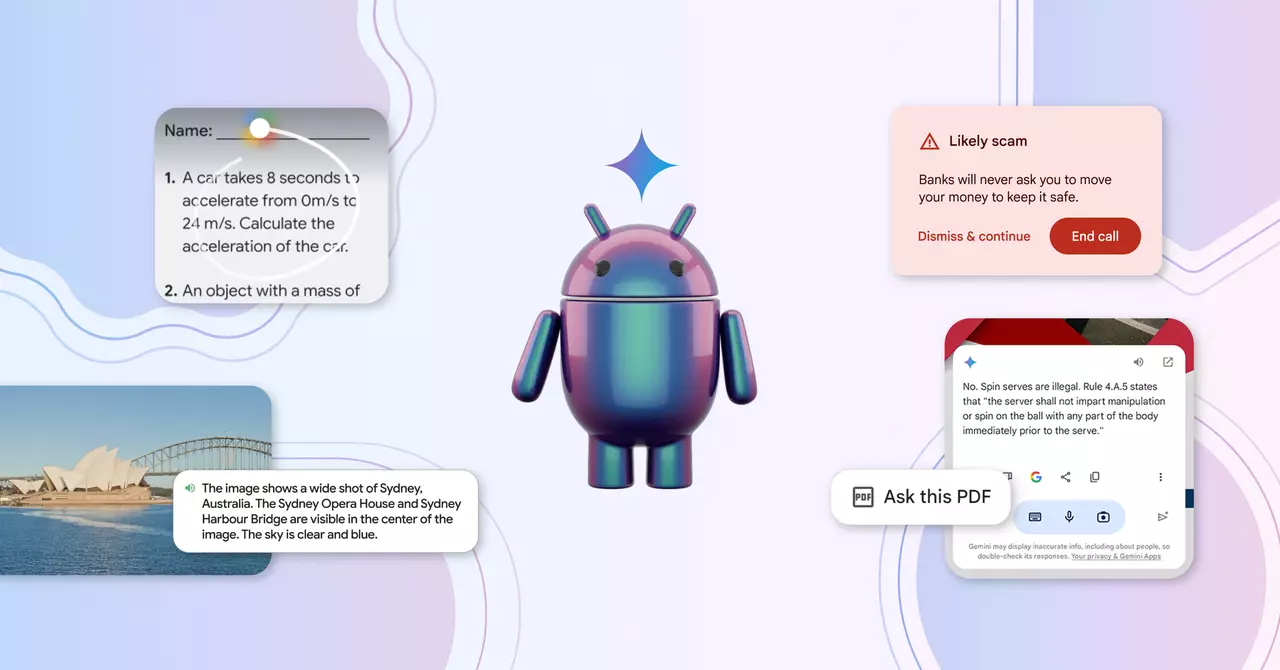Almost a decade ago, Google introduced a feature called Now on Tap in Android Marshmallow. This feature allowed users to tap and hold the home button to access contextual information related to what was on the screen. Whether it was getting details about a movie mentioned in a text or finding recommendations for a restaurant, Now on Tap felt like a futuristic and magical capability. However, over time, Now on Tap evolved into Google Assistant, losing some of its original charm and usefulness.
The new features showcased at Google’s I/O developer conference in Mountain View, California, aim to bring back the essence of the original Now on Tap. These features leverage advancements in large language models to provide users with contextual information that makes using their phones easier and more intuitive. Dave Burke, vice president of engineering on Android, emphasized the importance of technology in building exciting assistants and understanding visual information better than before.
During the conference, Google executives highlighted the significance of the updates as a once-in-a-generational opportunity to reimagine the capabilities of smartphones and revamp the Android ecosystem. Circle to Search, Google’s innovative approach to mobile search, stands out as a key feature that enhances the user experience. Similar to Now on Tap, Circle to Search allows users to interactively search for information by circling relevant content on the screen.
According to Sameer Samat, president of the Android ecosystem at Google, Circle to Search has received positive feedback from users, especially students. The latest iteration of Circle to Search caters to educational needs by providing step-by-step instructions on solving physics and math problems directly within the syllabus app. This integration of Google’s LearnLM models demonstrates a shift towards personalized and educational search experiences.
Gemini, Google’s AI assistant, is positioned as a significant competitor to Google Assistant, offering users an opt-in alternative for advanced AI capabilities. As Gemini continues to evolve and expand its functionality, there is speculation about the future of Google Assistant and whether it will eventually be replaced by Gemini. Samat clarified that Gemini is an opt-in experience for consumers, highlighting the choice and flexibility offered to users in selecting their preferred AI assistant.
Overall, Google’s latest Android features signify a notable advancement in leveraging AI and machine learning technologies to enhance user experiences. By focusing on contextual information, interactive search capabilities, and personalized assistance, Google is paving the way for a more intuitive and efficient mobile ecosystem. The future of Android looks promising with the integration of advanced AI assistants like Gemini and innovative features like Circle to Search.


Leave a Reply